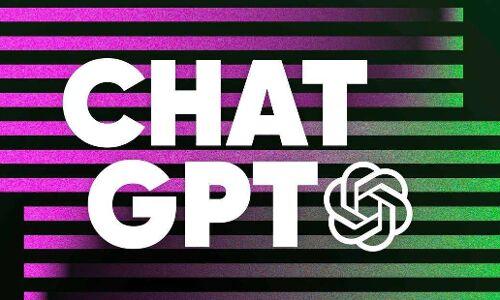How can educators make sure their students are still learning?
BY: FAWWAZ ASHRAF
Staff Writer

Late last year, the world was blessed with ChatGPT, one of the most powerful AI chatbots ever released to the public. It could craft strong, informative responses to just about any question and change its style based on the context. Students didn’t take long to realize they could use it to complete their assignments. The writing can be nearly indistinguishable from a student’s writing, and even tools, like GPTZero, that try to detect AI-written essays aren’t perfect. So, how can educators make sure their students are still learning?
The most apparent solution to deter the use of AI is forcing students to complete their assignments in class, but this isn’t a very elegant solution. Especially with the rise of fully online and hybrid classes, this just isn’t an option for many people. Even for in-person classes, this isn’t a viable approach for large out-of-class essays that need time for research. However, one way this could be implemented is through a flipped classroom approach where students are expected to learn the material outside of class and then apply those ideas in class. While I’m not particularly fond of this teaching style, it’s likely one of the most effective ways to combat the use of AI.
Requiring peer-reviewed sources is also a strong deterrent against AI-written essays. ChatGPT doesn’t provide any sources for its claims, and Bing doesn’t always provide strong sources. Instead, students can use AI as a starting point. Using the general ideas that an AI model might provide, a student can have an idea of where to begin their research. This way, the student still learns how to find and use strong sources, and the analysis of these sources is still left to the student. On the opposite end of the spectrum, teachers can ask students to relate the contents of a lesson to their personal experiences. However, this latter method isn’t as effective, as ChatGPT can create fairly convincing narratives given enough context.
For English teachers, an effective way to reduce or negate the use of AI, and even reduce other methods of cheating, would be to move required reading towards less classic works. Books like The Great Gatsby and Of Mice and Men have been analyzed millions of times, so just about any opinion on them has already been said. This leaves AI models with a myriad of data from which they can form essays. By choosing less iconic books, students will have to be more reliant on their own thoughts and understanding when writing essays. It’ll also make cheaters easier to catch due to the limited amount of public analyses on the book, limiting the number of ideas and perspectives the AI has to work with. ChatGPT is also not fully up to date on the latest works, so choosing something published recently could also be an effective deterrent. There’s also the added bonus of helping smaller authors grow.
One of the most significant issues, though, is that this only reflects the current state of AI. As these technologies continue to advance and more specialized models are developed, it’s completely possible that computers could be capable of writing well-articulated multiple-page essays with peer-reviewed sources and formatted citations within the next few years. It’s also not unreasonable to assume that AI may be able to read and analyze a book within minutes soon.
As much as teachers try to mitigate the use of AI, students and developers will grow increasingly creative with their techniques, and I can’t wait to see how this will affect our stagnant education system.











